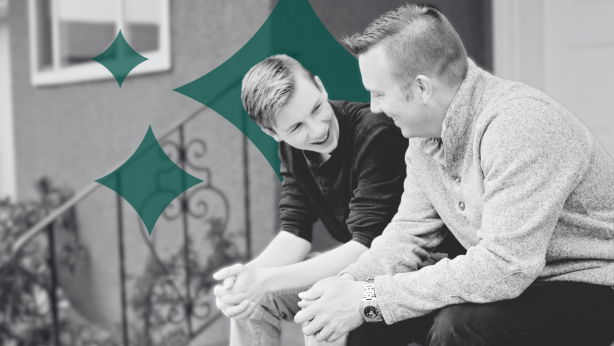Sexual Violence and Intimate Partner Violence: Uncovering a Hidden Harm in Abusive Relationships
1 in 4 women and 1 in 9 men experience severe intimate partner violence (IPV) in their lifetimes. This disturbing fact likely brings up images of physical assault, however, IPV includes many other forms of abuse. Sexual harm is a common one and understanding the connection between IPV and sexual violence is key to supporting survivors and ending the cycle of abuse.
What is Intimate Partner Violence (IPV)?
Intimate Partner Violence, or IPV, is any form of abuse that happens in a romantic or intimate relationship. When the pair also live together, it is called “domestic violence”. IPV includes physical violence, emotional abuse, psychological manipulation, financial control, and sexual abuse. It’s important to remember that IPV is about power and control—one person uses violence or threats to dominate and intimidate their partner. Anyone can be a victim, regardless of gender, age, or background.
Physical abuse may be the most visible sign of IPV, but all forms of abuse and control are damaging. Many survivors experience multiple forms of abuse which may happen over months or years. Sexual violence is often one of them.
What is Sexual Violence?
Sexual violence refers to any unwanted sexual act, from harassment to rape. It can include sexual assault, coerced sex, unwanted touching, revenge porn, and any other sexual activity that happens without consent. Sexual violence is often used as a tool of power and control, much like other forms of IPV. In fact, sexual violence is common within abusive relationships. Nearly half of women and one in three men who experience sexual assault are victimized by an intimate partner. This overlap shows how closely sexual violence and IPV are connected, as both stem from a desire for control.
How are IPV and Sexual Violence Connected?
There is a strong connection between IPV and sexual violence, as sexual violence is often one of the many forms of abuse that occur in an abusive relationship. Both IPV and sexual violence involve the exploitation of power. In cases of sexual violence within an intimate relationship, the abuser might use force, threats, or emotional manipulation to pressure their partner into unwanted sexual acts. This pattern of power and control is a common thread linking these types of violence.
The Impact on Survivors
The trauma of both IPV and sexual violence can have long-lasting impacts on survivors. Many struggle with mental health, suffering depression, anxiety, PTSD (post-traumatic stress disorder), and feelings of shame or guilt. The physical injuries caused by IPV or sexual violence can range from bruises to broken bones, and sexual violence may also lead to unwanted pregnancies or sexually transmitted infections (STIs).
For survivors of both IPV and sexual violence, leaving an abusive relationship can be incredibly difficult. Abusers often isolate their victims, making them feel dependent on their partner for emotional, financial, or physical needs. This makes it harder for survivors to escape the cycle of abuse. Many feel trapped or rightfully fear that leaving will lead to even more violence.
Social and cultural beliefs often worsen the problem by promoting harmful ideas—like the absurd notion that consenting to a relationship means consenting to all sexual activities, or that assault within a relationship is less serious than assault by a stranger. It wasn’t until 1993 that all 50 states criminalized rape within marriage, which is stark evidence of how society has historically viewed intimate partner violence. Even today, laws vary from state to state. It’s no wonder that victims of sexual assault within a relationship have an especially hard time speaking out or even recognizing they experienced rape.
How to Break the Cycle
By spreading awareness and understanding the warning signs and links between different forms of gender-based violence, you can help break the cycle of abuse and create safer communities. If you or someone you know is in an abusive relationship or has experienced sexual harm, it’s important to reach out for help. Survivors may feel ashamed or guilty, but it’s crucial to understand that abuse is never the victim’s fault.
Survivors are not alone. Many organizations provide compassionate, confidential, and non-judgmental support for survivors. They focus on empowering survivors by sharing options and information, allowing them to make informed decisions and choose the best support for their situation. They can connect people with counseling, legal support, shelter, safety planning, answer questions, or simply listen.
Check out the resources below for help. If you are unsure who to contact, call the Clove Alliance 24-hour hotline at 815.932.3322. Our advocates can offer you options and connect you with helpful resources.
Resources for Survivors of IPV, Sexual Violence, or Both
Clove Alliance
- Serving survivors of survivors of sexual violence in Kankakee, Iroquois, and Ford counties in Illinois.
- Services include a 24-hour hotline (815.932.3322), advocacy, counseling, legal assistance, and more.
Harbor House
- Serving survivors of domestic violence/IPV in Kankakee and Iroquois counties in Illinois
- Services include a 24-hour hotline (815.932.5800) and chatline, emergency shelter, counseling, support and assistance with the Court System, and more.
National Sexual Assault Hotline
- Serving survivors of survivors of sexual violence in the USA.
- 24-hour hotline at 1-800-656-4673.
- Online chat support is available.
National Domestic Violence Hotline
- Serving survivors of domestic violence/IPV in the USA.
- 24-hour hotline at 1-800-799-7233.
- Online chat and text messaging support are available.


